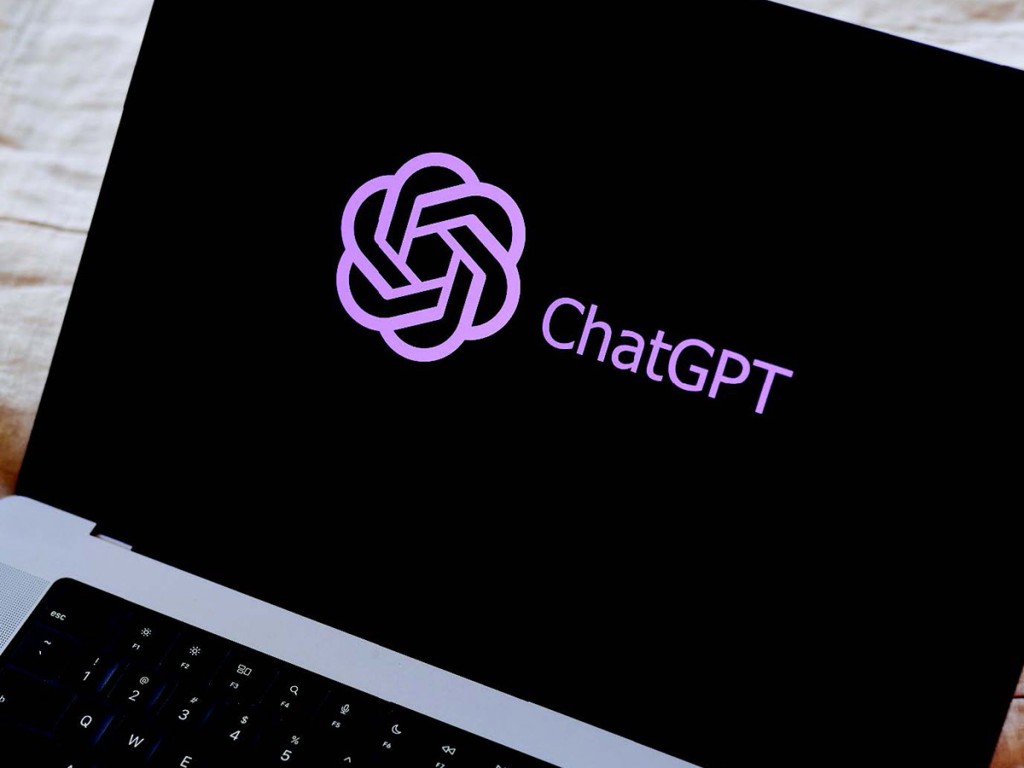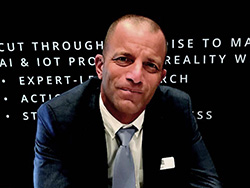AJOT correspondent Manik Mehta attending the AI New York 2023 Summit held at the Javits Convention Center got a glimpse of an AI future.

If there was a single technology expected to grow and gradually permeate almost all industries, including the transportation, shipping, and logistics industry, it is artificial intelligence better known as AI, that seems to be following that path.
This was also the verdict passed by most providers, users and AI experts who had descended on the AI New York 2023 Summit held December 6-7 at the Javits Convention Center in New York.
Various reports suggest that the AI market size will post strong growth rates in the next seven years, with one report expecting the market size to reach US$ 1 trillion in 2030.
Adam Goldberg, a member of the GTM team, ChatGPT Enterprise, at OpenAI, stated during a panel discussion at the summit that AI will be used by 100% of the enterprises, adding that the next two or three years would be “wild”, with organizations aggressively making changes in their business processes.
Alysa Taylor, corporate vice president for Azure & Industry at Microsoft, recalled that a large number of organizations had grappled with ways of using generative AI in 2023. But in the coming year, she said, they would actively resort to using new AI tools and procedures and the pace of transformation would be faster then. Some even suggested that AI could enhance human intelligence and overall creative output with one Indian AI expert saying that “it enables us to become better experts faster. It does not matter if you have been in a profession for three decades or three hours.”
AI Will Impact All Large Industrial Sectors
Joshua Builta, research director who heads the research team for AI and IoT at OMDIA, part of Informa Tech, a technology research and advisory group, shared his insights on tech markets. “Our company [has] existed12 years … I can say that there will be no large industry, including operators in the transportation sector, that will not be impacted by AI,” he said in an interview, adding that his organization had been talking to several industries, exploring ways and means of increasing productivity and efficiency, and reducing costs.
“AI is already being used, for example, by a large number of departments in the aviation sector. It is being used in infrastructure and for smart transportation and smart cities that can improve the lives of people. Technology development is moving very fast, and U.S. companies respect AI regulations.”
Corporations are resorting to AI’s use at a much faster pace. “AI will play a very important role in our lives. Over half of all companies surveyed by us felt that AI would become the ‘new normal’. AI can help alleviate some of the labor shortages of some western countries in specific industries. AI is championed by vice presidents, presidents, CEOs, CTOs, etc., at the highest corporate level,” Builta said.

Chin-Yung Lin, CEO of New York-based Graphen Inc., explained that his company worked with several industries using his company’s robots. Displaying images of “digital humans”, he said this next-generation of AI interactive assistants (AIia) would unlock “boundless possibilities for businesses through knowledge, intelligence, efficiency and consistency”, as Lin put it.
He claimed that his booth had received visitors from the financial, medical, pharmaceutical, educational, and other sectors at the summit. “We provide API (application programming interface), a powerful technology for traditional cars and EVs. We provide diagnostics on cars with defects. Our services can also be used in the aviation and steel industries as also for infrastructure development,” said Lin.
AI Offers New Wave of Analytics
Konrad Konarski, chair/director of operations at the Applied AI Consortium and a member of its board of trustees, with expertise in AI, IoT and XR technologies for the oil, gas and pharmaceutical industries, pioneered initiatives for enhancing worker connectivity and productivity through AI, collaborating with industry players such as ExxonMobil, BP, and Dow Chemical, etc. He said that his organization developed AI for assorted industries including machinery, aviation, etc. Konarski pointed out that AI could help prepare documents and analytics relative to port logistics.

Greenstar Technologies LLC of Somerset, New Jersey, which provides a platform as a service for energy utilities’ digital transformation, has pioneered the SaaS concept, and plans to host its platform in its National Energy Operations Centre (NEOC) which will provide managed services for U.S. utilities in a diversified and customized model, enabling real-time data analytics delivering business intelligence for generation, transmission, and distribution functions of the utility in a dynamic digital format.
AI companies catering to the energy sector, are drawn by the prospect of business from the Biden administration’s $ 1.2 trillion worth Infrastructure Investment and Jobs Act which attaches importance to clean energy.
In an interview with the American Journal of Transportation, Dilip Rahulan, chief business officer of Greenstar Technologies, pointed out that there are 1,600 utility companies in the U.S. electricity segment. “We provide software in the segments of energy utilization, transformation, etc. The software enables develop platform. AI is an integral part of every application … we have invested substantially with the aim of expansion … we do analytics with our team of engineers and have done business in overseas markets. Our business model is used in infrastructure projects,” he said.
AI: Job Killer or Job Builder?
“Billions of people are expected to use AI … the sector is evolving … I expect phenomenal changes in the transportation sector,” Rahulan contended.
AI is seen by many as a “job killer” but there are also those who scoff at such notion. “You will need human beings to control machines and robots. Yes, some jobs may be lost, just like any new technology does, but it will not eliminate all jobs. After all, some 60% of jobs that we see today were ‘invented’ in 1940. The fear of jobs being lost, compared to new jobs being created, led to creating work and allowing time for other work,” said Jonathan Burke, an Irish human resources specialist.
FedEx’s CTO Adam Smith underscored at the event that his company constantly explored innovative ways to improve its operations, using the latest developments in generative AI, a branch of AI.





